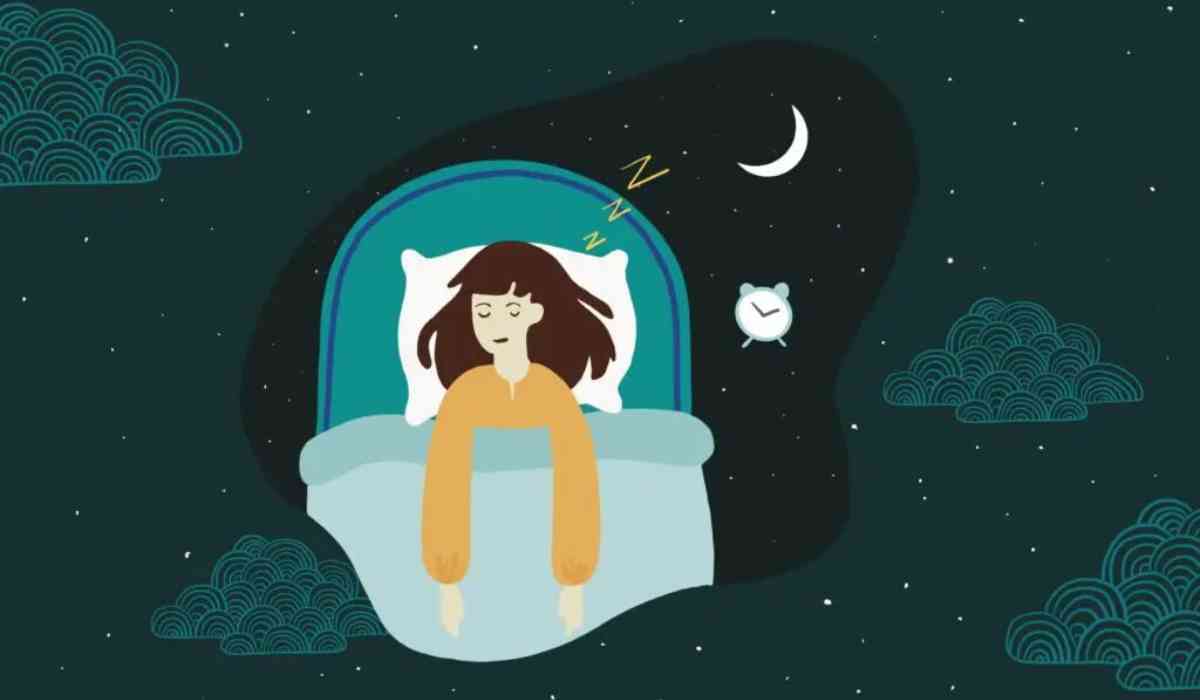Ah, the sweet lullabies of sleep! We all cherish those moments of blissful shut-eye, but could there be too much of a good thing?
Getting a good night's sleep is often celebrated as a cornerstone of good health and vitality. However, just as inadequate sleep can be detrimental, excessive sleep can also pose risks to our well-being.

What is Oversleeping?
While the recommended duration of sleep varies from person to person, it's generally advised that adults aim for 7 to 9 hours of rest each night for optimal health. Surpassing this threshold consistently—sleeping more than 9 hours within a 24-hour period—may signify an issue with oversleeping.

Symptoms of Oversleeping:
Identifying the signs of oversleeping is crucial for early intervention. These symptoms may include:
-
Excessive Daytime Sleepiness (EDS): Individuals experiencing EDS struggle to stay awake during the day, often succumbing to unintended naps.
-
Hypersomnia: Characterized by prolonged sleep durations, hypersomnia can lead to persistent fatigue and interfere with daily activities.
-
Mood Disturbances: Anxiety and depression are commonly associated with oversleeping, impacting one's emotional well-being.
-
Physical Ailments: Headaches, weight gain, and cardiac issues can manifest as a result of chronic oversleeping.
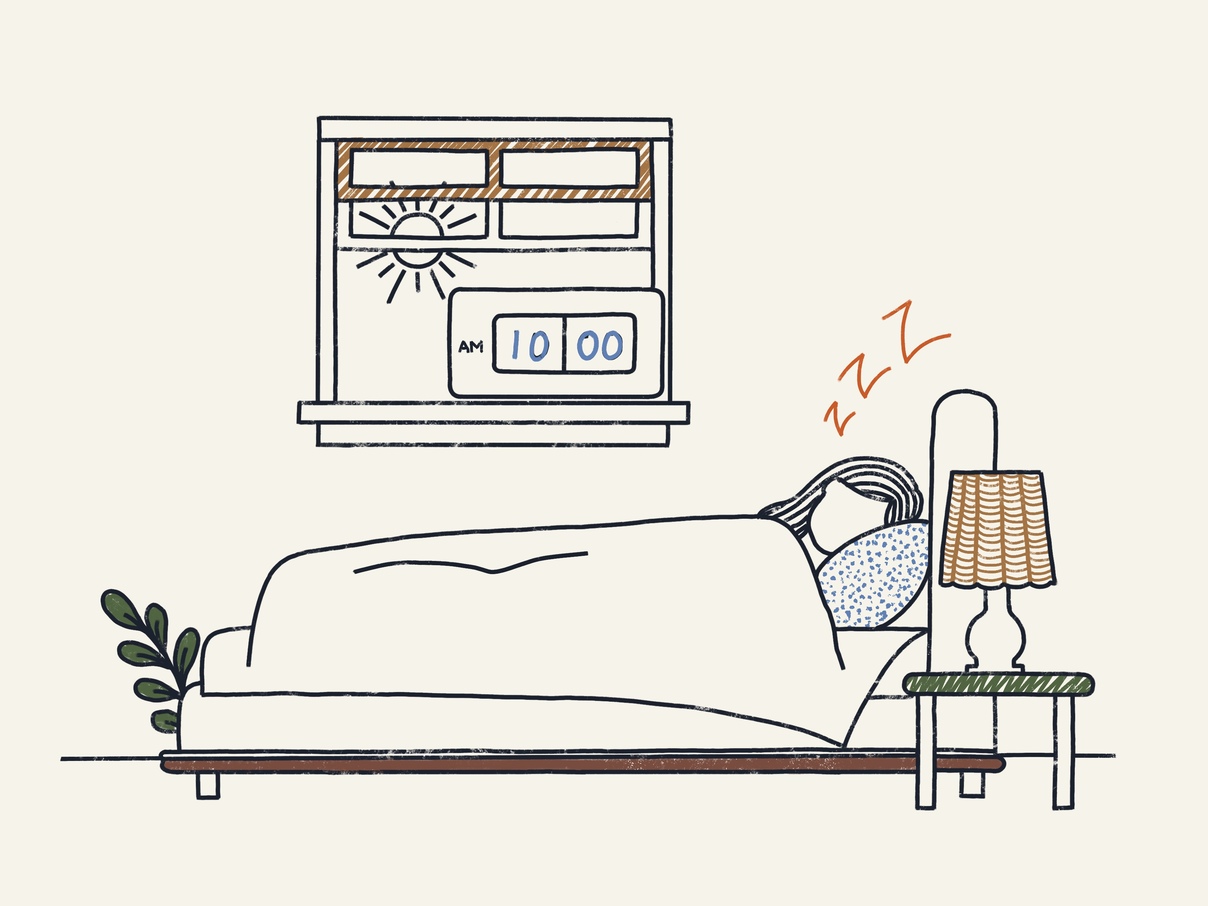
Causes of Oversleeping:
Understanding why one might oversleep is essential for addressing underlying issues. Possible reasons include:
- Obesity
- Heart Disease
- Diabetes
- Restless Leg Syndrome
- Bruxism (Teeth Grinding)
- Chronic Pain
- Sleep Disorders: Such as sleep apnea, insomnia, or narcolepsy.
- Illness: Conditions like hypothyroidism, flu, colds, or COVID-19.
- Mental Health Disorders: Depression and anxiety can contribute to excessive sleep.
- Medications
- Substance Abuse: Including drug and alcohol use.
- Environmental Factors
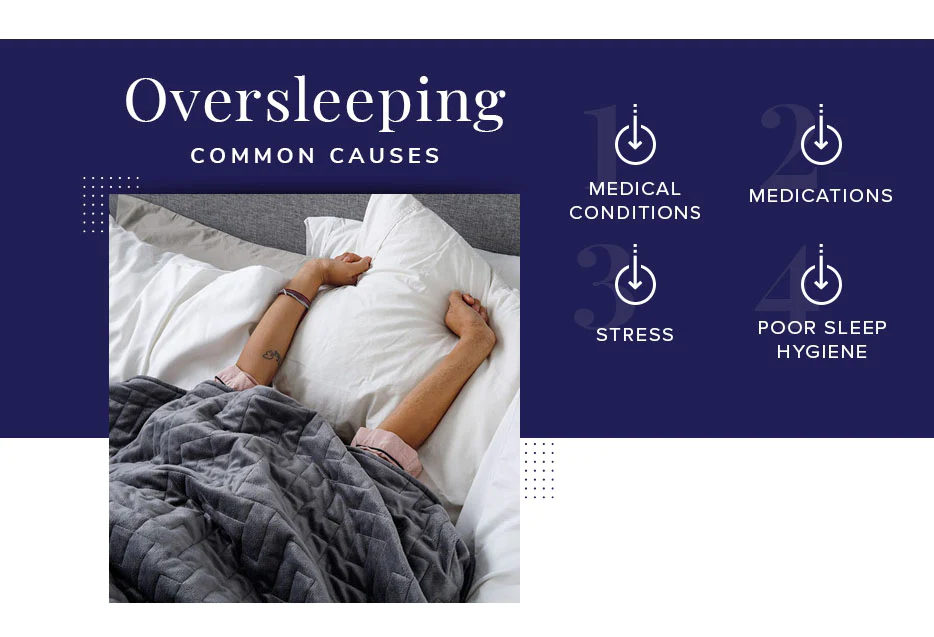
How much sleep do you need?
Numerous variables, including your age and lifestyle, may influence how much sleep you require each night.
Here are the guidelines:
|
Age
|
Hours of sleep per day
|
|---|---|
|
0–3 months
|
14–17 hours (includes naps)
|
|
4–11 months
|
12–15 hours (includes naps)
|
|
1–2 years
|
11–14 hours (includes naps)
|
|
3–5 years
|
10–13 hours
|
|
6–13 years
|
9–11 hours
|
|
14–17 years
|
8–10 hours
|
|
18–64 years
|
7–9 hours
|
|
65 years and older
|
7–8 hours
|

Negative Effects of Oversleeping:
Oversleeping, despite being perceived as a luxury, can usher in several adverse consequences:
- Daytime drowsiness and fatigue: Oversleeping disrupts the natural sleep-wake cycle, resulting in grogginess and lethargy throughout the day.
- Impaired cognitive function: Excessive sleep affects cognitive abilities such as memory, attention, and decision-making, impairing concentration and task performance.
- Mood changes: Oversleeping is associated with mood disorders like depression and anxiety, exacerbating feelings of sadness, irritability, and low energy.
- Increased risk of chronic diseases: Studies indicate a higher risk of obesity, diabetes, heart disease, and stroke among those who oversleep regularly.
- Reduced sleep quality: Contrary to expectations, oversleeping can lead to fragmented sleep and frequent awakenings, diminishing overall sleep quality.
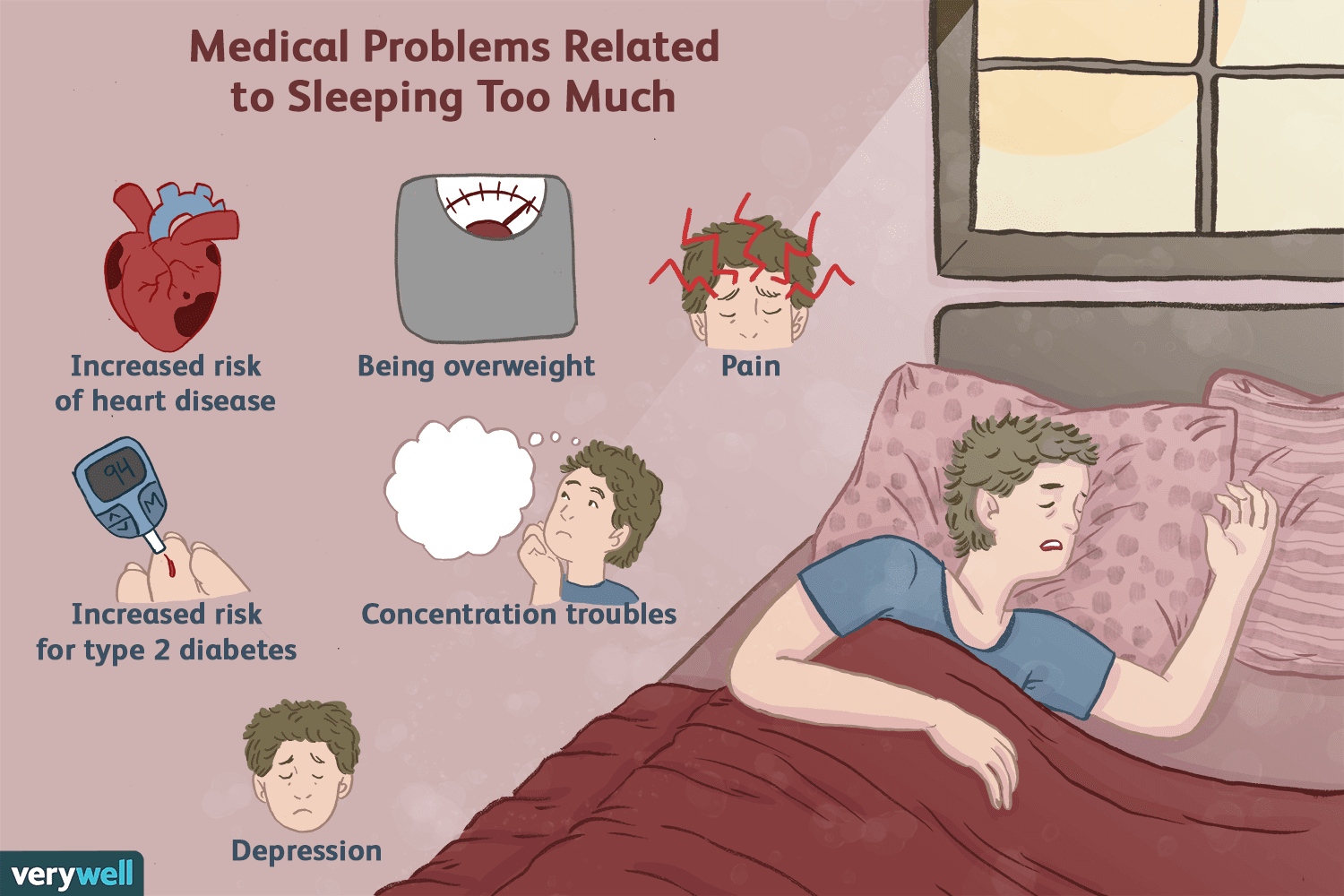
Tips to Prevent Oversleeping:
To avert oversleeping and foster optimal sleep hygiene, consider implementing the following strategies:
-
Maintain a consistent sleep schedule: Go to bed and wake up at the same time daily, even on weekends, to regulate your internal clock. By maintaining regular sleep times, you train your body to expect rest at specific intervals, enhancing overall sleep quality.
-
Establish a relaxing bedtime routine: Signal to your body that it's time to wind down by engaging in calming activities before sleep.
-
Limit screen time before bed: Reduce exposure to screens emitting blue light, as it can disrupt your sleep cycle.
-
Avoid stimulants before bedtime: Refrain from consuming caffeine or alcohol close to bedtime, as they can interfere with sleep quality. Instead, consider taking sleep gummies as a gentler part of your wind-down routine.
-
Create a conducive sleep environment: Create a comfortable space conducive to relaxation and sleep, incorporating elements like blackout curtains and white noise. Ensure your sleeping space is cool, dark, and quiet, optimizing conditions for restful sleep.
-
Engage in regular physical activity: Incorporate exercise into your daily routine to promote better sleep quality and duration, but avoid intense workouts close to bedtime.
-
Practice relaxation techniques: Integrate mindfulness practices into your daily routine to improve sleep patterns and reduce the need for oversleeping. Explore relaxation exercises such as sleep meditations and progressive muscle relaxation to prepare your body and mind for sleep.
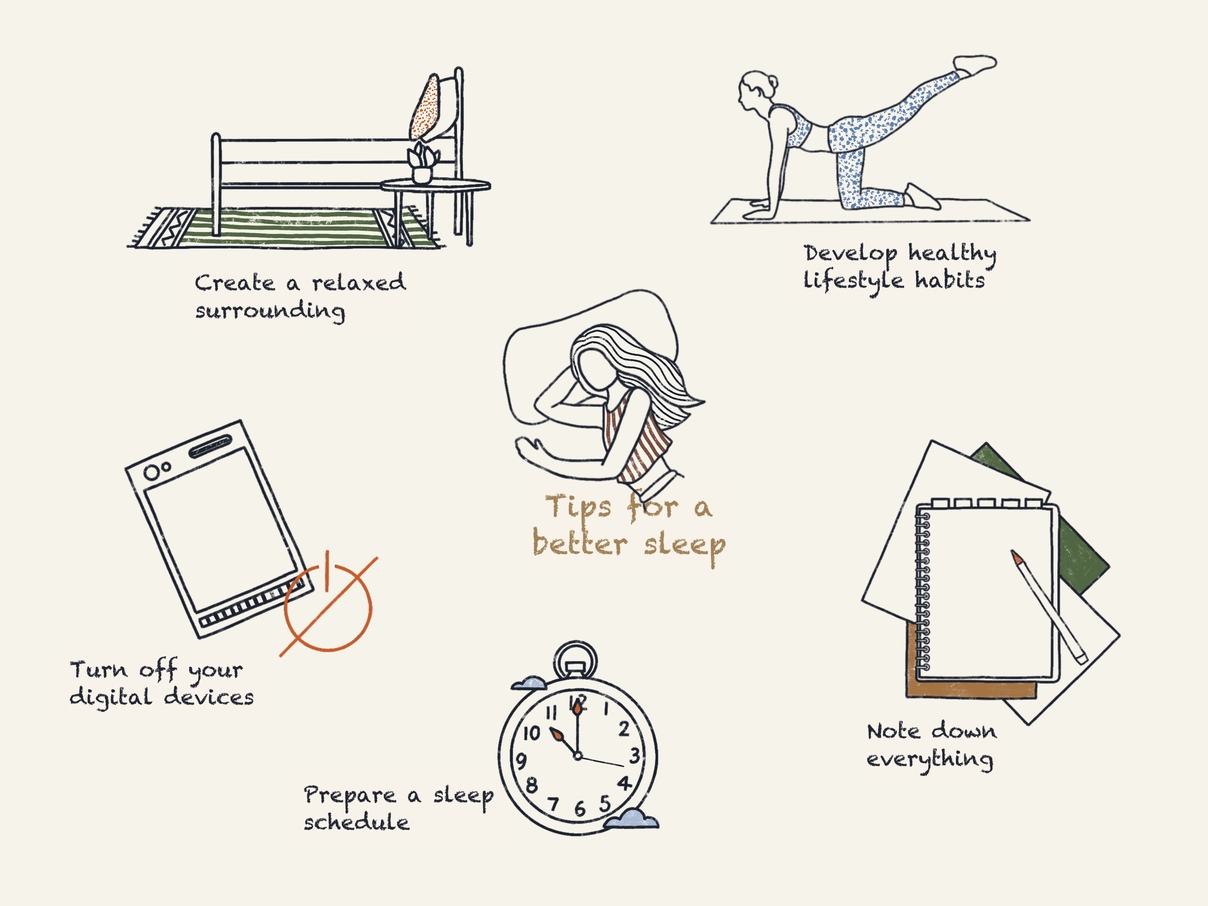
There you have it, fellow sleep enthusiasts! Oversleeping might seem like a dream come true, but it's a slippery slope into the slumber swamp. Just remember, moderation is key, even in Dreamland!
Image Source: Multiple agencies
Disclaimer: This article has been published as part of a paid collaboration. It may contain sponsored links or references provided by the advertiser. The views and claims expressed are solely those of the sponsor/author and do not necessarily reflect the views of Vygr News or its editorial team. Vygr News does not endorse or guarantee the accuracy of any linked content, products, or services. Readers are advised to exercise their own discretion before engaging with any external links or offers mentioned.
© Copyright 2024. All Rights Reserved Powered by Vygr Media.

